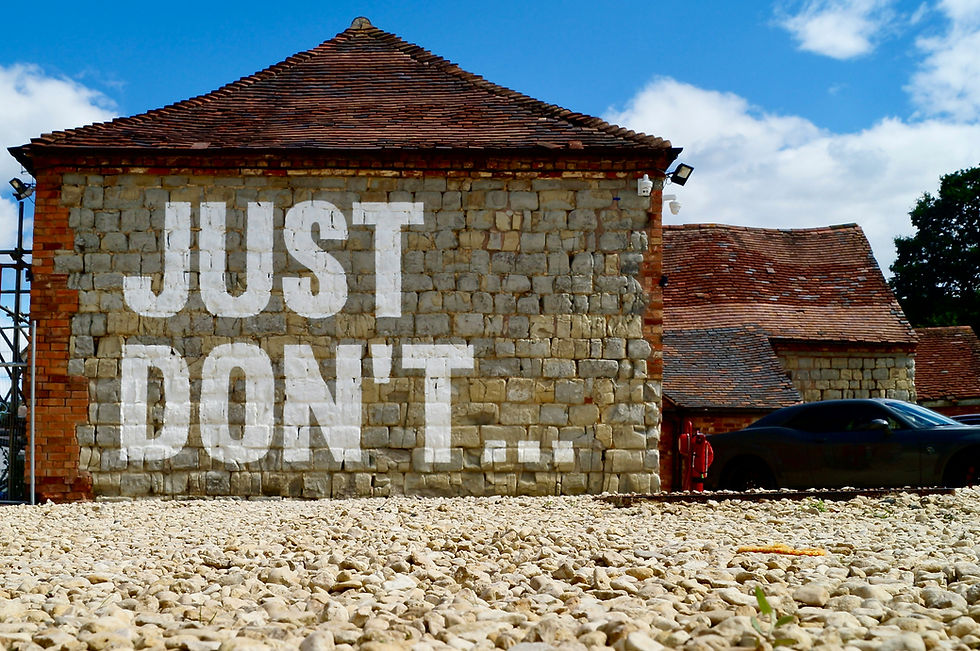Whiteness Is Overpriced
- Jessica Kiragu
- Nov 2, 2022
- 3 min read
Updated: Oct 9, 2025
Whiteness offers a kind of belonging—at least on the surface. It gives me—a white woman in the U.S.—a sense of place, a group to identify with, a way to fit in. It teaches me the rules of how to move through a racialized world and rewards me when I play along.
But that belonging comes at a steep cost.
For me, it’s overpriced. I’m finding—when I cling to whiteness—I lose more than I gain.

One of the biggest costs has been how I learned to doubt and dismiss the experiences of people of color—some of the people I love most. There’s this painful pattern I’ve noticed in myself, and in many other white folks too. Someone I care about will share a story about racism they’ve faced. I’ll listen, take in what they’re saying—and then almost immediately start searching for another explanation.
Maybe it wasn’t racism. Maybe it was a misunderstanding. Maybe it was just a bad day. Maybe the person didn’t mean it that way…
I’ve caught myself reaching for anything that lets me believe it wasn’t about race. Instead of simply believing the people I know and trust—who chose to come to me with honesty and vulnerability—I turn toward the comfort of my own disbelief.
And every time I do, it’s about me. I’m choosing whiteness over relationship. Comfort over truth. The familiarity of the status quo over the discomfort that real change requires.
I tell myself stories to make it easier—stories like, I just can’t believe people could be that cruel, or I don’t want to think the world works that way. I convince myself that my denial is because I care—that I couldn’t possibly accept that the world could be this unfair. That surely things aren’t that bad—that maybe the harm isn’t real.
But it is real. Things are that bad. And each time I look for proof that it’s not, I keep the same system going—the one I wish would end. I end up hurting the people I love, distancing myself from my values, showing up in ways I know I don’t want to, and staying loyal to whiteness.
That’s the real cost. Whiteness keeps me from seeing clearly. It lets me stand by, numb to the weight of what’s happening. It separates me from others, dulls my empathy, and teaches me to protect my own comfort instead of showing up for our shared humanity.
I’ve felt the tightness of sticking with it—the way whiteness narrows how deeply I can connect, who I'm allowed to be, and what I can believe. The way whiteness twists logic—how it has us white folks ignoring what’s right in front of us and looking elsewhere for “truth.” I’ve seen how sticking with whiteness means questioning the reality of racism instead of facing it head-on.
It isn’t just personal either. This clinging to whiteness shows up in lots of places. Look at our workplaces—we’ve known for years that diverse teams are smarter, more creative, more profitable. And still, white people dominate our leadership roles and workforce. Organizations, like individuals, keep choosing loyalty to whiteness over real change, keep ignoring what’s right in front of us.
So I keep wondering—what are we so afraid of losing? Can we actually name it?
Maybe we sense that whiteness has always been built on separation—on who gets to belong and who doesn’t. And if we let go of it, we fear we might end up on the outside too. That fear runs deep. I know it because I’ve felt it.
But when I slow down, step back, and really pay attention, I can see just how much choosing whiteness costs me. I give up true connection for a kind of belonging that never really feels secure. I cling to a shaky sense of self instead of the wholeness I actually long for.
Whiteness might offer a sense of safety for someone like me—a white person in the U.S. But it’s a safety that costs us our souls. Belonging to whiteness costs me the chance to fully belong to myself, to my values, and to the people I love.
White folks, we can’t say racism is over while clinging on to the very thing that built it. We can’t tell others to “move on” when we’re the ones refusing to let go. As long as we cling to whiteness, justice, wholeness, and freedom remain out of reach.
If we want these things—for ourselves, for our communities, for our world—we have to face the truth about the system that shaped us—and the ways it still lives on through us.
So I keep asking myself—what am I giving up when I keep choosing whiteness?
What might open up if I let go?
Because whiteness is overpriced.
And the cost just might be us.




Comments